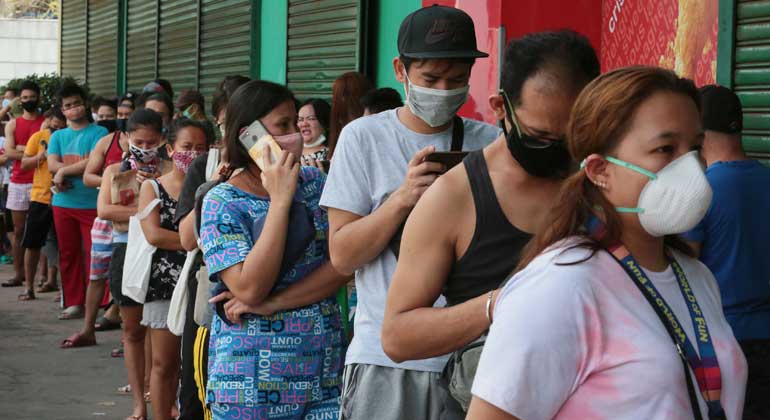
By Charmaine A. Tadalan, Reporter
THE passage of any new tax measures in the Duterte administration’s last year in office is unlikely, according to key lawmakers, even as the Finance chief said new sources of revenues are needed to pay off the debt incurred during the pandemic.
Finance Secretary Carlos G. Dominguez III told a Senate committee hearing last week the government would start looking into new revenue-generating measures in late 2021 or early 2022 “to pay for the heavy indebtedness that we are incurring this year” due to the pandemic.
As of Sept. 15, the government had obtained $9.9 billion worth of loans and grants from external sources to fund its coronavirus disease 2019 (COVID-19) containment effort and to support recovery measures.
“I think Secretary Dominguez’s timeline is a bit on the late side, although the Department of Finance (DoF) has been working with the Committee on Ways and Means to find revenue sources that do not erode economic growth,” Albay Rep. Jose Ma. Clemente S. Salceda, who heads the committee, told BusinessWorld in a phone message last week.
The DoF’s timeline is also close to the 2022 national elections, which would make it difficult for lawmakers, especially those seeking reelection, to support any measure raising taxes.
But Mr. Salceda said the tax bills may stand a chance even in an election year.
“You will remember that I championed tobacco tax reform at the height of the campaign for the 2019 elections. Elections make tax laws more difficult, but not impossible, to pass,” he said.
The coronavirus pandemic and the economic slowdown has also affected government revenues.
“The DoF, not just this one, but past DoFs in the last decade or so have managed to lower costs of our borrowings. COVID-19 changed that somewhat with lowered demand and production hence lower revenues also,” Senator Juan Edgardo M. Angara, who is vice chairman of the Ways and Means panel, told BusinessWorld in a phone message.
He said he would back revenue measures on a “case-to-case” basis, citing his support for the revenue-negative Corporate Recovery and Tax Incentives for Enterprises Act (CREATE).
Meanwhile, Mr. Salceda said bills increasing the government’s revenue share from the digital economy and mining industry as well as reforming tax administration would be enough to increase collection.
The digital economy tax bill, which targets large corporations, is expected to be approved at the House of Representatives this week. This is on top of bills that raise corporate income tax and streamline incentives, and update the road users’ tax, which have been sent to the Senate.
“We don’t lack measures to raise revenues,” Mr. Salceda said.
He said he would file a proposed Tax Administration Reform Act and look into overhauling the registration and tax compliance system to reduce the cost of paying taxes.
He also pushed the passage of the CREATE bill that will immediately lower company taxes to 25% from 30%. It is expected to result in P40 billion foregone revenues in 2020 and P650 billion in the next five years.
This forms part of the government’s economic stimulus package, along with Republic Act No. 11494, or the Bayanihan to Recover as One Act (Bayanihan II) that allocates up to P165 billion in aid.
“We need to achieve a quick and lasting economic recovery. There is nothing much to tax when the economy is still struggling…. It’s critical that we complete our economic recovery program,” Mr. Salceda said.
He argued it is unlikely that the Philippines will strongly recover without CREATE, which is aimed at capturing investments from companies relocating out of China. The bill is under plenary deliberation at the Senate.
CREATE is among the priority measures President Rodrigo R. Duterte mentioned in his fifth State of the Nation Address. It is also among the bills listed down by 14 business groups as priorities.
